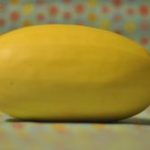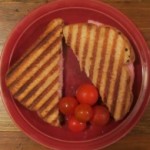When teaching about the food groups in MyPlate I find it’s also important to explain the concepts of mixed foods, empty calories and nutrient dense foods. Junior high students are often confused as to what these terms actually mean. After…
Author: K.Graybill
Kim Graybill is a veteran Family and Consumer Science teacher who teaches both middle and high school in Pennsylvania.
Decision Making Lesson & Group Activity
For years I struggled with how to teach decision making more interactively. I wanted students to know and understand the process and be able to apply it to important decisions in their lives, but I also wanted an activity where students…
Timetoast Timeline Technology
Timetoast.com is an easy to use and free web technology that allows your students to create interactive timelines for historical data, life events, stories and research projects. There are many opportunities to use it in the Family and Consumer Science classroom.
Breakfast: The Most Important Meal of the Day!
If we’ve heard it once we’ve heard it a thousand times…BREAKFAST is the most important meal of the day! Eating a healthy breakfast benefits us in many ways such as providing nutrients and energy, maintaining weight, boosting metabolism, and helping…
Creativity & Play The Dr. Seuss Way
As soon as my students see the cans of Play-doh sitting out they get excited! Common questions are “Is that for us?” or “Do we get to play with that today?” And why not? As a child I enjoyed creating things out of Play-doh and still do today. Play-doh is fun and creative! I also enjoy Dr. Seuss books for the same reason. So why not combine the two? When we teach our students about children and the importance of literacy and play, I think it’s only fair to include the importance of creativity and imagination. This interactive lesson strives to connect the areas of development with creative play in a way that, I hope, would honor Dr. Seuss!
Task Rotation Learning Grids for the FACS Classroom
Grill Off: The Grilled Cheese Challenge
Promoting Whole Foods

When it comes to my food, I like to keep it REAL! Growing up real foods came from the garden and fruit trees we grew, harvested and preserved. Real muffins, cookies, and desserts were made from the eggs we gathered daily from our backyard chickens and real meats came from the wild game my father hunted and fished for. Home cooked meals were prepared by my mother and were made with real foods with ingredients I actually knew and could pronounce. Sadly, the majority of my students don’t know what it means to eat real. All they know is the pre-packaged, easy to make foods known as processed. This lesson explains the differences between the whole, real foods I know and the processed foods they know and hopefully gives them “food for thought” when it comes to making REAL changes in their eating habits.
Time to Feed the Baby: Homemade or Store Bought?
Spaghetti Squash: Best Kept Secret

Looking for a guilt free, low calorie, alternative to pasta that will surprise your taste-buds? Look no more! Spaghetti squash is one of those best kept secrets that needs to be shared! Not only is it easy to prepare, but versatile too. So what are you waiting for? Swap out that pasta for spaghetti squash and encourage your students and their families to try experiment and try something NEW.



